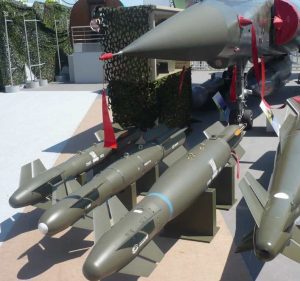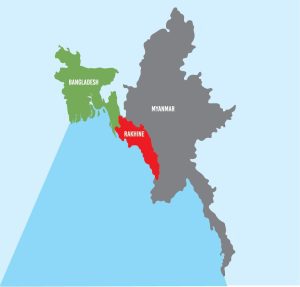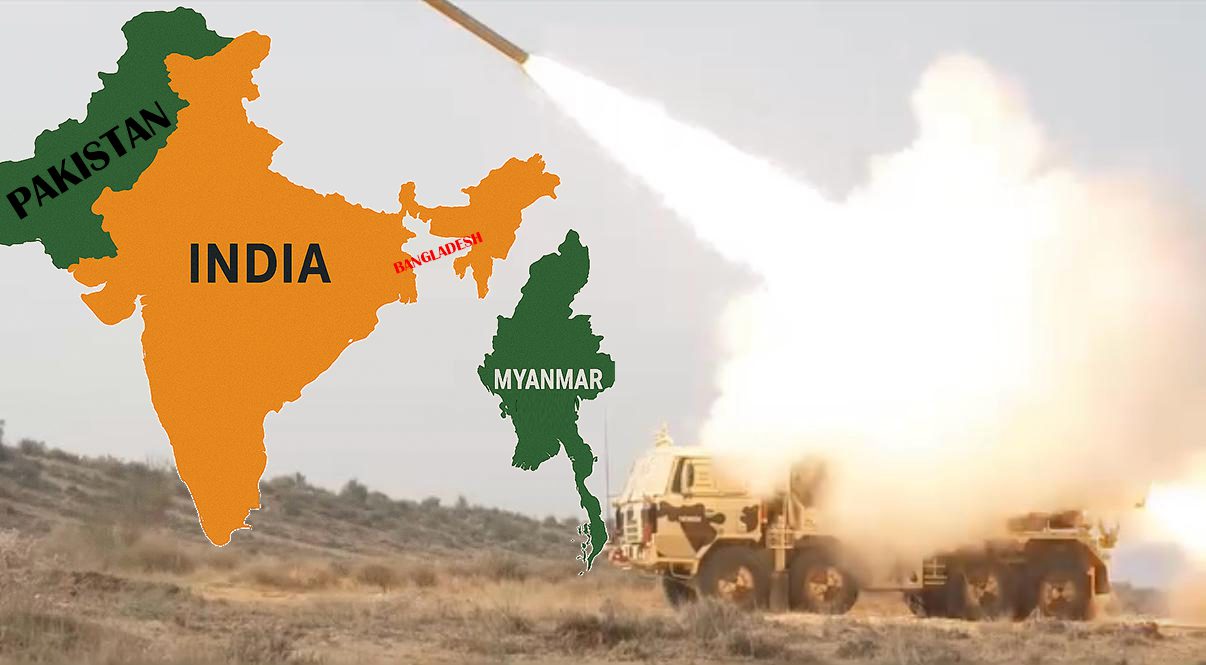Although not a party to any direct conflict, Bangladesh — having just ousted authoritarian rule and entered a transitional democratic phase — now faces emerging geopolitical challenges as war clouds gather across South Asia.
Concerns are mounting as nuclear-armed rivals India and Pakistan teeter on the brink of war, while Myanmar’s western Rakhine State descends into civil war between the military junta and Arakanese rebels. The intensifying militarisation around Bangladesh’s borders is pushing the region toward a complex and volatile situation.
Analysts say simultaneous military tension on two fronts presents Bangladesh with multifaceted challenges. However, not everyone is alarmed.
Renowned international relations expert Professor Imtiaz Ahmed stated, “Though both India and Pakistan possess nuclear weapons, they are unlikely to escalate into full-scale war — most likely it will remain confined to retaliatory strikes.”
On Wednesday night, Pakistan claimed at least 26 civilians were killed and 46 injured in Indian missile strikes — a response to last month’s deadly gun attack in Pahalgam, Indian-administered Kashmir, where 26 people were killed. Indian media outlet NDTV, however, reported as many as 70 deaths. The result: a near-war situation between the two nations.

Some believe internal political motives may be at play.
Writer and thinker Farhad Mazhar argues that India’s ruling BJP may be trying to stir anti-Muslim sentiment to win upcoming elections in Bihar and West Bengal — a development he believes could complicate Bangladesh’s position.
He warns that any major development in the subcontinent inevitably affects Bangladesh and triggers reactions among its people. Citizens’ responses to foreign conflicts can influence domestic policymaking — a matter of concern for the current transitional administration.
Dr. Rudabeh Shahid, a non-resident senior fellow at the Atlantic Council’s South Asia Centre, thinks so.
She emphasised that escalating tensions between these nuclear-armed neighbours could have significant spillover effects across the South Asian region. Specifically, she highlighted the precarious position of Bangladesh, noting that the recent regime change has removed Sheikh Hasina’s pro-India administration and installed an interim government navigating a deeply polarised landscape.
“Anti-India sentiment is running high, fueled by perceptions of Indian interference and growing frustration at India for hosting the former Bangladeshi prime minister,” said noting that the unelected interim leadership now faces domestic pressure from nationalist and anti-India voices, while India diplomatically expects a cooperative stance from Dhaka — putting Bangladesh in a diplomatically sensitive and risky position.
Meanwhile, concerns are growing on another front.

International affairs analyst Altaf Parvez warns that India-Pakistan tensions are accelerating regional militarisation. As both sides ramp up defence spending, Bangladesh could feel pressured to increase its military budget — potentially at the cost of essential services for the poor.
“This shift of resources from the poor to the defence sector poses serious risks,” he said.
Parvez suggests Bangladesh should urge the UN and other global forums to facilitate dialogue between India and Pakistan, especially to resolve the Kashmir issue — as the crisis threatens the entire region.
The Rakhine conflict in neighbouring Myanmar is another critical front.
Analysts say the Arakan Army’s offensive against junta forces is worsening the situation, prompting Bangladesh to increase surveillance along the border. A senior Border Guard Bangladesh (BGB) official said there are daily incursions by Rohingya refugees, raising fears of a new humanitarian crisis akin to 2017 — something Bangladesh may not be prepared to handle again.
As a precaution, Dhaka has agreed to a UN proposal for humanitarian aid to people displaced in Arakan, hoping regional stability could aid future Rohingya repatriation.
Analysts note that Bangladesh has long maintained a neutral stance in South Asian geopolitics. But simultaneous conflicts on both borders are increasing diplomatic pressure on Dhaka. While the West and the U.S. favour humanitarian corridors in Rakhine, China and Russia support Myanmar’s junta. Meanwhile, Bangladesh’s cooling ties with India contrast with growing diplomatic warmth toward Pakistan.
This scenario demands scrutiny not just diplomatically but also militarily.
Retired Major General Mashud Razzaq emphasised that Bangladesh’s security forces must be mentally and physically prepared to respond quickly in any crisis. He called for maximum diplomatic engagement to reinforce ties with allies and urged tightly coordinated political, economic, military, and diplomatic actions.
He also advised against chasing short-term gains, stressing the need for careful cost-benefit analysis before any strategic move. “We must assess our own strengths and weaknesses clearly — there’s no room for relying on luck or mere hope,” he said. “Bangladesh must develop deterrence capability.”

So, what kind of strategy is needed?
“It must be calm, comprehensive, and deliberate,” said General Razzaq. “This is a power game involving lives, sovereignty, and borders. It demands patience, stability, and holistic planning.” He emphasised strict vigilance along the borders and increased monitoring of all trade and movement.
Another concern is that war-like conditions may provide a breeding ground for terrorist organisations. Security experts warn that dormant extremist groups in Bangladesh could attempt to regroup amid regional instability.
Police have already taken steps. Inspector General of Police (IGP) Baharul Haque said bordering SPs have been put on alert to prevent any terrorist infiltration amid the India-Pakistan standoff.
Economists and analysts also highlight the potential impact on Bangladesh’s economy.
Ongoing regional instability could disrupt trade and exports from South Asia. If investor confidence wanes, Bangladesh could also suffer. Port operations, export markets, and foreign investment flows may face increased risk — a concern already growing among the country’s business community.


